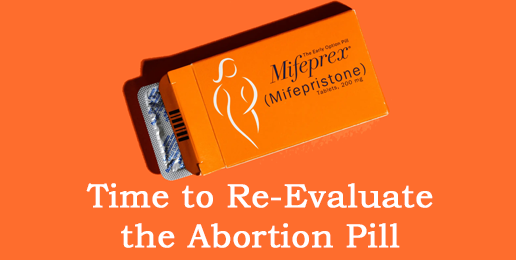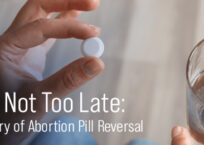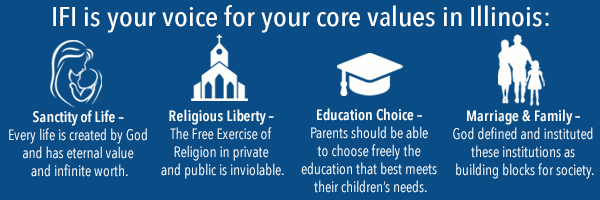
IFI Signs Joint Letter Urging President Trump to Re-Evaluate Abortion Drug
A study by the Ethics and Public Policy Center (EPPC), titled “The Abortion Pill Harms Women” reveals alarming medical risks associated with the abortion pill, highlighting its harm to women.
They analyzed insurance claims data from 865,727 mifepristone abortions between 2017 and 2023, making it the largest study of its kind. It found that 10.93% of women experienced serious adverse events, such as sepsis, infection, hemorrhaging, or other life-threatening complications, within 45 days of taking the abortion pill—22 times higher than the FDA’s reported rate of less than 0.5% based on older clinical trials.
The study also reveals that over 4.7% of women using the abortion pill visited an emergency room, 3.3% had hemorrhaging, 1.3% got infections, and 2.84% required surgical abortion due to incomplete procedures.
The study suggests that relaxed FDA regulations, including the removal of in-person screening requirements, may contribute to these risks.
This is why IFI joined the Family Research Council, the Family Policy Alliance, and Family Policy Councils across the country in signing a joint letter urging President Donald J. Trump to re-evaluate the safety of the chemical abortion drug mifepristone. (Read the letter to President Trump)
What is Mifepristone?
Mifepristone is a drug that is used in a two-drug chemical abortion regimen. It works by blocking progesterone, effectively starving the baby. It is followed by misoprostol, which causes the uterus to contract and expel the dead baby. While many states require it to be administered in the presence of a medical practitioner, it is now available to receive by mail. This allows women and girls in states with more comprehensive abortion laws to obtain the drug and perform very dangerous at-home chemical abortions.
Legislation in D.C.
Illinois U.S. Representatives Mary Miller and Mike Bost are cosponsors of H.R. 679, a bill introduced by U.S. Representative Diana Harshbarger (R-TN) earlier this year. This bill aims to nullify the FDA’s modifications to the mifepristone Risk Evaluation and Mitigation Strategy (REMS), which relaxed restrictions like in-person dispensing requirements.
This bill would also end the ability of retail pharmacies and mail-order services to distribute this chemical abortion drug, returning to in-person dispensing of the drug, and preventing the Department of Health and Human Services from establishing and enforcing any substantially similar provision of a risk evaluation and mitigation strategy for mifepristone.
Take ACTION: Click HERE to send a message to your U.S. Representative to urge them to support this legislation to protect women. We now have proof that mifepristone is not as safe was claimed by abortion cheerleaders like Planned Parenthood.
In 2023, chemical abortions accounted for 63% of all abortions in the U.S. formal healthcare system, according to the Guttmacher Institute. This is an increase from 53% in 2020. These figures exclude self-managed abortions outside the formal healthcare system, which is why some pro-life activists say the percentage of chemical abortions is over 70% to 80% or more.
We agree with U.S. Senator Josh Hawley’s letter sent to the FDA citing the EPPC study and demanding the restoration of critical safety safeguards for mifepristone, indicating potential momentum for further legislative action.
Illinois Family Institute would ideally like to see the FDA immediately revoke mifepristone’s approval for abortions, not only to ensure women’s health and safety, but to stop the destruction of innocent human life in the womb.
The Increasingly Fewer Safeguards
When the FDA originally approved the chemical abortion drug Mifepristone in the year 2000, a number of important safeguards were put into place, including:
- A limit only allowing the drug to be administered up to 7-weeks gestational age of the unborn child;
- Necessary doctor’s office visits;
- In-person physician dispensing and administration of the medication; and
- Non-fatal adverse event reporting.
In 2016, the FDA loosened some restrictions, allowing:
- Prescriptions of the chemical to be made via telehealth;
- Non-physician providers to place orders for the drug;
- Prescriptions up to 10-weeks gestational of the unborn child;
- Elimination of the reporting of non-fatal events.
In 2021, the FDA further allowed Mifepristone to be shipped to patients through the mail.
In 2023, the Alliance Defending Freedom brought a case before the U.S. Supreme Court claiming that the reversal of important restrictions on mifepristone were unlawful, and placed women across the country at risk for serious complications from a chemical abortion. Unfortunately, SCOTUS ruled that those bringing the case lacked standing.

























